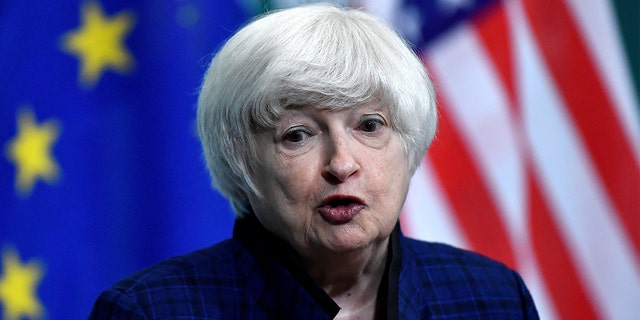White House economic adviser says U.S. better off than countries ‘facing famine’
White House economic adviser Brian Deese said Tuesday that while U.S. inflation is hurting Americans in their wallets, at least they’re not facing famine like some other countries.
During the White House press briefing, the National Economic Council director argued that the U.S. is not on the brink of a recession and that the state of the economy, which hit a whopping 9.1% inflation rate in June, could be a lot worse than it is currently.
“I think that our economy is more resilient to the types of challenges that we face,” Deese said. “For example, with respect to food, we’re a net exporter of agricultural commodities. And obviously, the high prices are hitting Americans very hard, but in a way that is different from some places that are facing famine, for example.”
“But I think if you look at the core elements of economic resilience, the United States is better positioned,” he added.
RECESSION WATCH: MORE AMERICANS STRUGGLING TO PAY THEIR BILLS, CENSUS BUREAU REPORTS
Deese said that despite projections by many experts, a recession is not inevitable, and he repeated the curious claim made by Treasury Secretary Janet Yellen on Sunday about the “common definition” of a recession.
Yellen argued that the “common definition” for a recession is two consecutive quarters of negative GDP, and while economists expect to see negative growth again this quarter after seeing -1.4% last quarter, she said that still wouldn’t mean the U.S. is in a recession.

Deese reiterated Tuesday that “two negative quarters of GDP growth is not the technical definition of recession. It’s not the definition that economists have traditionally relied on.”
“There is an organization called the National Bureau of Economic Research, and what they do is they look at a broad range of data and deciding whether or not a recession has occurred,” he said. “That is the process that economists and administrations have used for years and decades to identify when a recession has occurred.”
Read the full article Here


